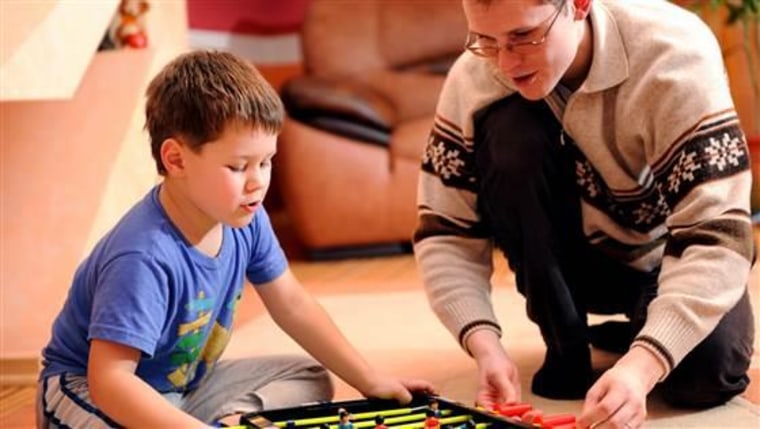When it comes to learning honesty, it seems boys may be getting a different lesson than girls.
Parents are more willing to lie in front of their sons than their daughters, according to a recent analysis published by the National Bureau of Economic Research.
The findings may provide clues to why we lie, and why other studies have shown men lie more than women.

Why parents seem to be much more careful to teach honesty to girls than boys is a bit of a mystery. Possibly they value it more in girls or believe girls might pay a bigger penalty for lying than boys when they’re adults, said Anya Samek, one of the paper’s authors.
“Perhaps it’s socially more accepted when men are dishonest, but not women,” Samek, an assistant professor of economics at the University of Wisconsin-Madison, told TODAY Parents.
“It’s not clear whether this is an evolutionary kind of trait where (parents) try to impart more honest behavior onto their female children or whether it’s culturally formed.”
The findings are based on a simple experiment involving 152 parents and their children, each 3-6 years old.
The parents were asked to flip two coins, each with a green and a blue side, and jot down the results. If both coins landed green side up, they would win a small prize. Any other outcome meant no gift at all.
Some parents were left completely alone in the room during the coin toss. Others were allowed to take their child along. The experimenters made clear they would not observe any of the results.
Here’s where it gets interesting.
The probability of winning a prize was 25 percent, but the parents often self-reported much higher rates of winning — almost 60 percent in some cases — which is how the researchers knew some of them were cheating.
As expected, the adults were more honest when their child was in the room. People are less likely to act shady when someone is watching and when that someone is your kid, you also have a desire to “model honesty,” Samek said.
“Not only do you want your child to believe that you’re good, but you also want your child to learn from you to be an upstanding citizen in the future,” she noted.
What did surprise the researchers was the gender effect.
When the parents were in the room with their daughters, they reported a winning coin toss close to 25 percent of the time — or just as would be expected if they acted honestly.
But when they were left alone with their sons, they "won" more than 40 percent of time, a significant difference.
The findings may explain why studies consistently find adult women are more honest than men. The researchers speculate this may start with “differences in the way girls and boys are socialized by parents at early ages.”
Samek wants to repeat the experiment in other countries to see whether the results are similar around the world or influenced by culture.
Her advice to parents: Modeling good behavior is important because kids do pay attention to how you act — whether girl or boy.